Next full WSI Institute (New York, Lesotho, South Africa, U.K.) in Lesotho June/July 2020
Originally conceived as an HIV/AIDS theatre project, The Winter/Summer Institute (WSI) grew out of my teaching and creative work at the National University in 2005. Launched in June 2006 by eight colleagues from the U.S., U.K., South Africa, and Lesotho, WSI is a multicultural, collaborative effort among performers and facilitators from three continents and community participants from the rural mountain villages of Lesotho’s Malealea Valley. The bi/triennial program challenges participants to create issue-based, aesthetically provocative, entertaining theatre. Our name, Winter/Summer, reflects the diversity of cultures and the vast geographical distances that combine to form our innovative partnership – winter in South Africa and Lesotho is summer in the U.S. and U.K.
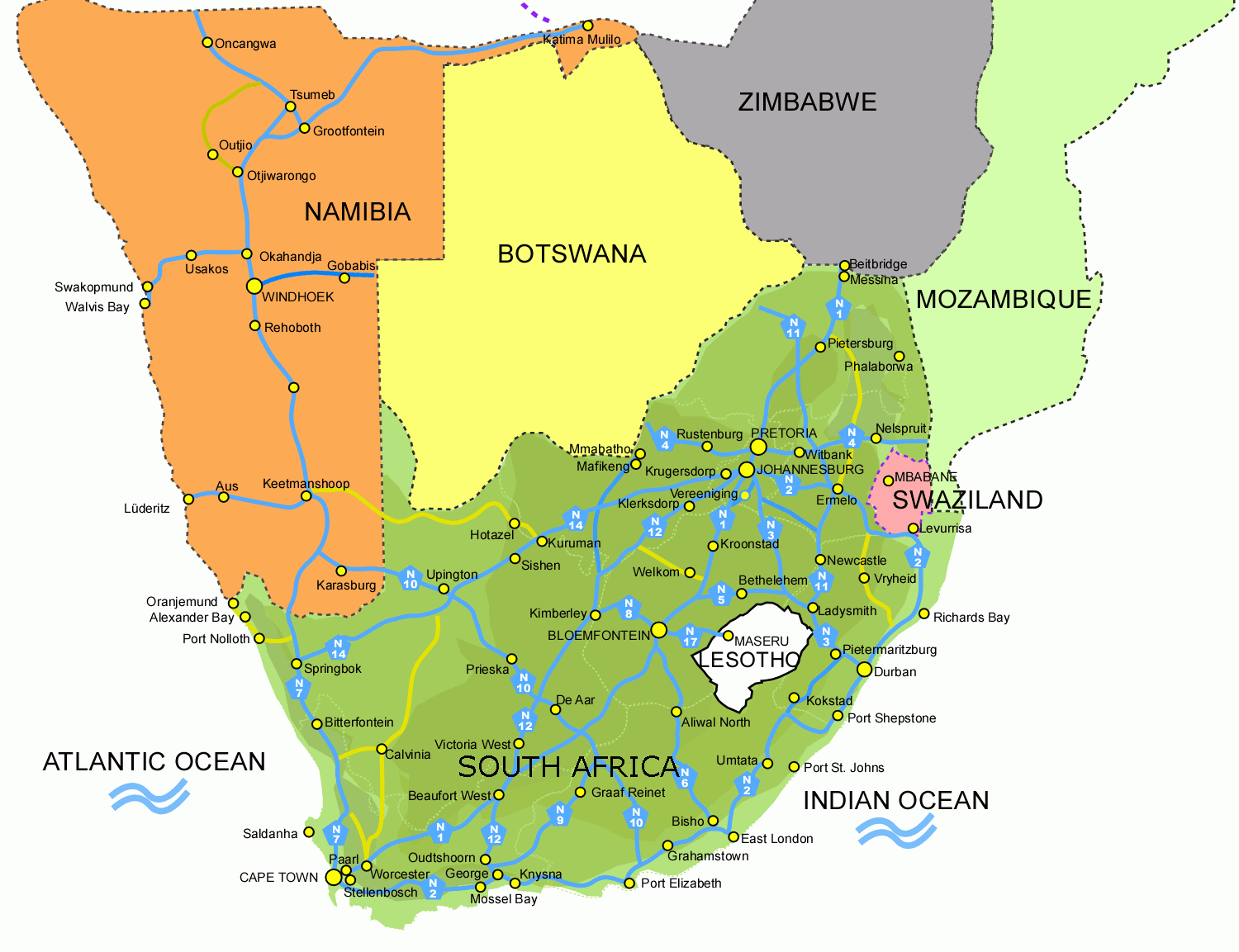
At its inception, the focus of WSI was a response to the community health situation in Lesotho. Along with much of sub-Saharan Africa, Lesotho has a staggering HIV infection rate – currently estimated at over 23.1% ¹ (in 2018, the 2nd highest in the world), and disproportionately affecting young women between the ages of 18 and 24.
As a crucial aspect of addressing the pandemic in our early theatre work, WSI examined the ways in which complex social issues impact the spread of HIV. In 2006 we looked at how gossip and silence could lead to disempowerment and danger in the face of the crucial challenges of modern life. In 2008, we explored the potentially dynamic effect of Multiple Concurrent Partnerships or MCPs (networks of simultaneous, ongoing, committed sexual relationships with a small number of people) on the continuing spread of the virus. An account of our MCP performance work appeared in American Theatre Magazine. and you can get a glimpse of our MCP show, It’s Just You and Me … and My Wife and Your Boyfriend, along with a thumbnail of our developing creative process below.
In our most recent international gathering, we examined ways in which "tradition" and "modernity" clash around questions of religion and medicine, and experimented with often-hidden issues of homosexuality, sex trafficking and the risks inherent in the growing urban/rural divide – all presented within the performance frame: “Can secrets make us sick?”.
Along with our international gatherings in Lesotho, there have been ongoing “local” residencies, research projects and fundraisers, as well as WSI-focused articles, essays, masters and doctoral dissertations.
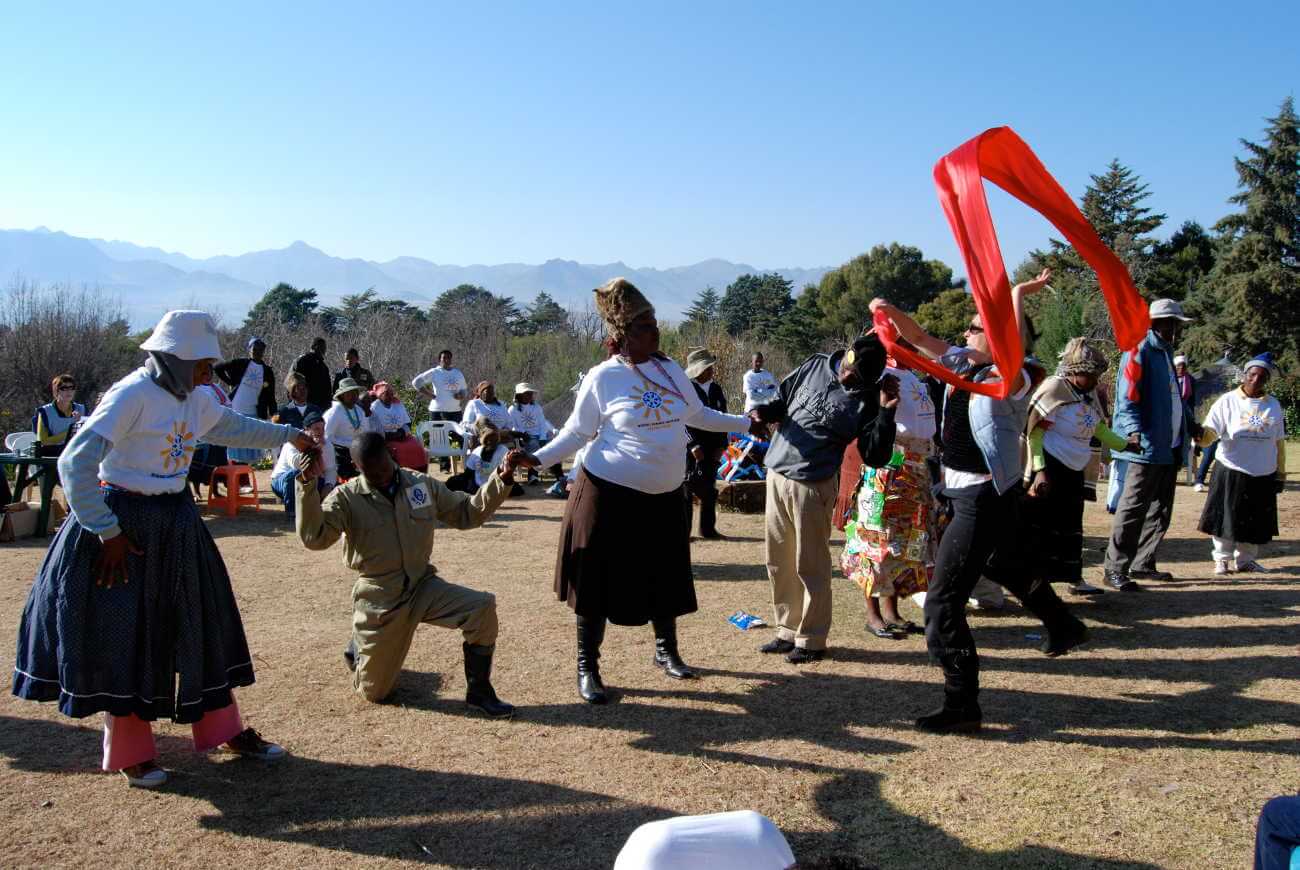
Make Theatre. Make A Difference.
The first of those projects, the play Venus by Suzan-Lori Parks, began the day before I left New York – set in motion by an 11th hour request by the U.S. embassy in Lesotho that I present some African-American theatre as part of an annual celebration of Black History Month. The embassy suggested a talk. I suggested a simple staged reading.
The play is about Sara Baartman, the so-called Venus Hottentot, a native Khoisan woman from South Africa’s Eastern Cape who, in the early 1800s, was tricked by her Dutch owner into going to London, where she was put on display in a freak show because of her prominent ass and astonishing genitalia. She died in a cage in Paris in 1816. Baartman’s story is well-known in southern Africa. Because of that, and because of issues the play addresses like colonialism, misogyny and racism, there was an immediate buzz on campus about Venus. Within ten days of my arrival the talk/reading had become a fully-fledged show with fourteen actors, an assistant director and three stage hands (despite the fact that we had no stage).
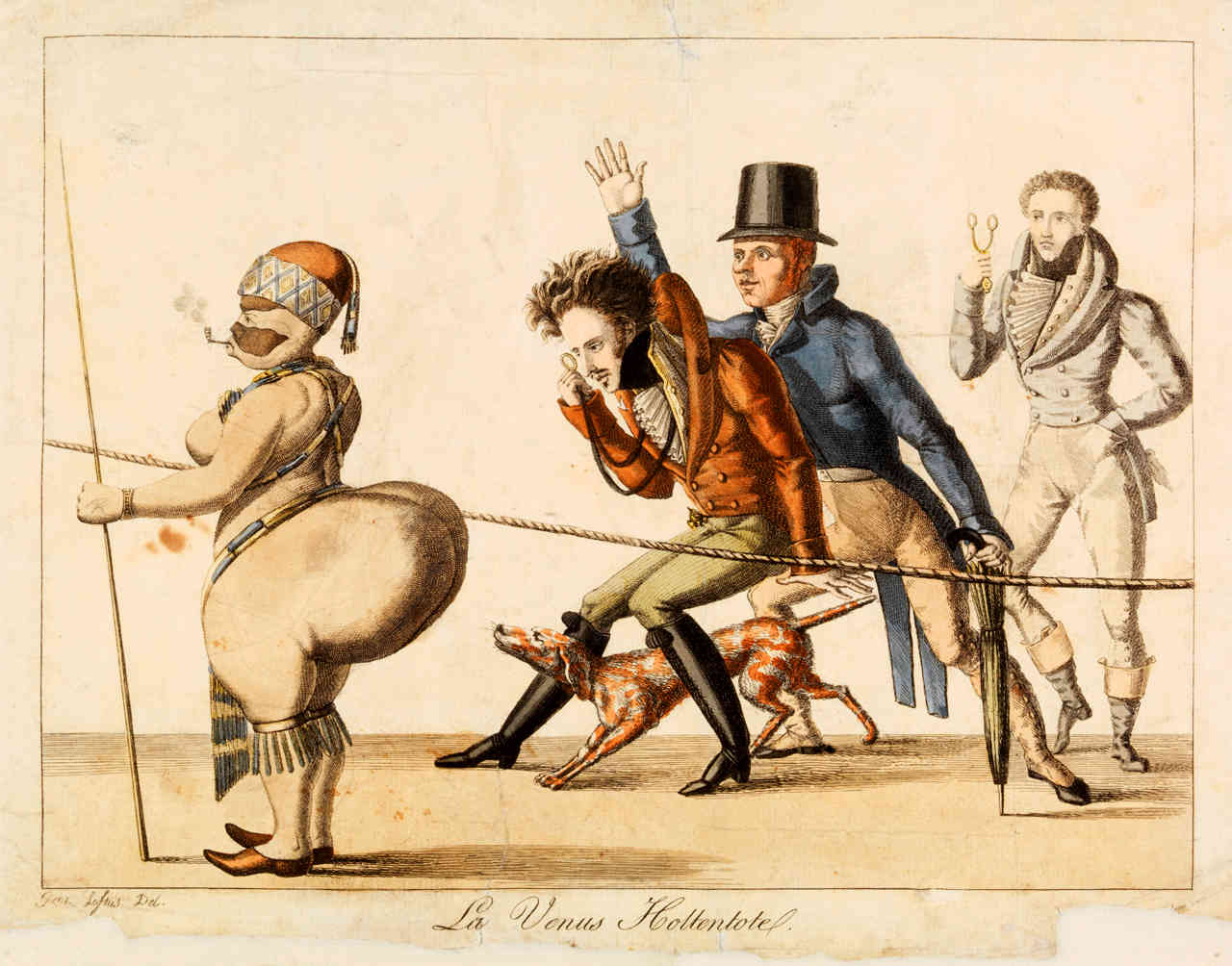
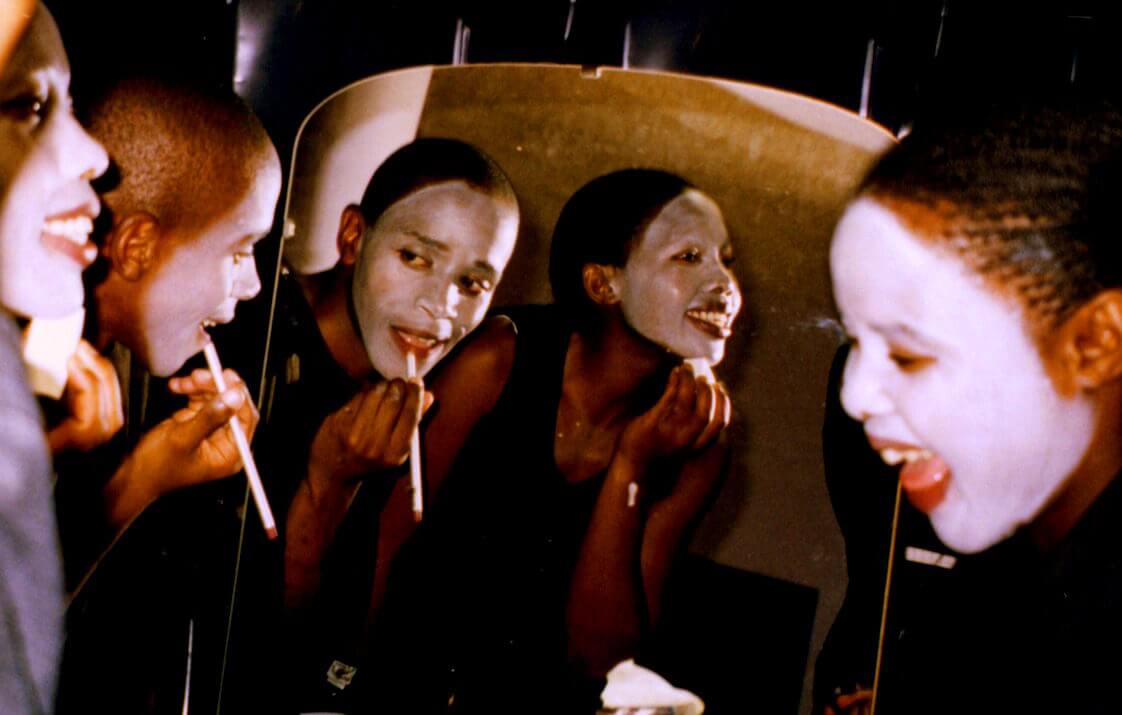
Venus was a success beyond anything we might have imagined. With our cast of fourteen students, an edited version of the 162 page script, and in an agonizingly short three and a half weeks of rehearsal, we put together a compelling, entertaining and visually arresting performance. Using the circular, silo style Moot Court of the university’s Department of Law as our theatre, we staged the show with a few scavenged props, improvised costumes and no set beyond the judge’s bench and witness stands already bolted to the mock courtroom’s floor. The actors performed in English– a second (third or fourth) language for them all – and the European characters were portrayed in whiteface, adding a further layer of “otherness” to a play already consumed with and by the Other.
After a sold-out Opening and a Standing-Room-Only second night, demand for more performances was so intense we staged the play on campus throughout the semester, and performed it at nearby secondary schools. We then took the show to Lesotho’s capital, Maseru, where we played to another Standing Room Only crowd. Finally (and miraculously!), Venus was picked up for a brief run by the Performing Arts Centre of the Free State (PACOFS), a professional theatre in Bloemfontein, South Africa.
The complicated, exhausting and often very funny story of creating Venus is the core of my performance piece Outpost and is the starting place for my chapter, “Venus in Lesotho: Women, Theatre and the Collapsible Boundaries of Silence” in Palgrave Macmillan’s 2012 book Feminist Popular Education in Transnational Debates: Building Pedagogies of Possibility
Tsepang Abiele, Mamasoatsi Chabalala, Mpinane Klass, Lerato Lehlabathe, Lereko Lekena, Retsilisitsoe Machobane, Irene Mere, Maphehelle Mokete, Thabo Mokotso, Katleho ‘Moleli, Limpho Moshanyana, Kekeletso Motanyane, Limakatso Ntelele, Matumahole Phafane, Mphongoa Phatela, Makaoli Ramashamole, Mapitso Sekete-Clourinah. Assistant director: Rethabile Malibo; Design: Rebokile Lekena & Mlogeni Nthako

or Gossip & Silence
The second project, Do You Want to Hear What I Heard?, followed fast on the heels of Venus and involved seven of the young women who’d been in the show who were also in my Theatre for Development (TfD) course. To fulfill the practical TfD component, I’d volunteered us to the campus HIV/AIDS Coordinator, who asked if we could create some theatre for the university’s AIDS Day Ceremony in April.
Unlike the scripted Venus, we’d create the HIV piece from scratch using some basic TfD methods, improvisation and anything else worth exploring. We focused on two pieces of the HIV puzzle: Why wasn’t behavior changing despite safe sex campaigns about how the virus is spread? And, why was the virus having such an impact on young women? We started with an easy target – the tired, ubiquitous ABCs of AIDS prevention: Abstain, Be Faithful, Condomize. Three “rules” that, as most women’s organizations pointed out, were impossible to negotiate because of gender inequity and sexual coercion.
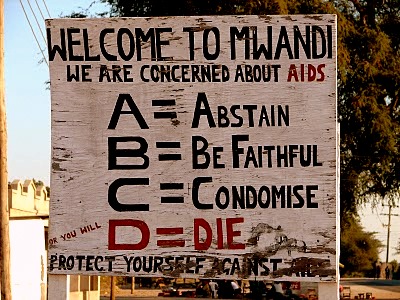
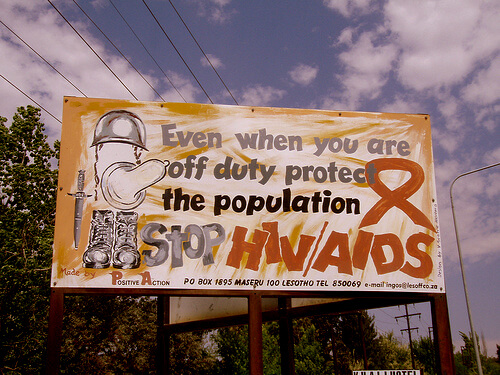
We had a great time improvising ways to make fun of how out of touch the ABCs were with the realities of young women’s lives. But, regardless of how far our improvs went into taboo territories like sexual abuse or abortion, we never got much below the surface – no one would talk about herself. They would, however, tell me lots of things about other members of the Venus cast, instructors on campus, siblings, aunts, uncles, and even neighbors back home. I thought of this as the Talking/Not Talking paradox – silence in reference to themselves, but voluminous and sometimes virulent gossip about everybody else.
Experimenting with the gossip side of the paradox seemed the most promising route, so we played a game that lets you put your words into other people’s mouths. Sitting in a circle on the floor, each would name something she thought someone else in the circle would not, did not or could not talk about. And so we began making a list: …sex…past deeds…incest …stealing…rape…abortion…prostitution…Christianity… shame…poverty…homosexuals…self esteem… shyness…money…uncles…
The list eventually led to a series of harsh, revealing monologues, from which we began to craft a spare, highly visual piece of theatre built on accessing some of the young women’s most basic fears in relation to HIV. The virus rendered young people silent, so we turned that silence on its head, and made it a call-and-response with the audience about their own reluctance to face reality, and about their own love of gossip. In order to give gossip a potent visual frame, we used what I considered our secret weapon: seven flamboyant, brilliantly-colored Chinese silk fans a friend shipped from New York. They were the only props we had, but they were the only props we needed. With them we created a visual vocabulary of gossip and silence, marking key moments of the piece with bright frozen tableaus.
TfD can lead to some dull, patronizing attempts at “educating” people through theatre. In creating Do You Want to Hear What I Heard? We struggled to bring humor, beauty and gravitas to our performance. The result was a startling piece of interactive theatre – serious and funny, interesting and poignant, visually simple but stunning. Of the almost one thousand students who attended the AIDS Day Ceremony, several referred to the piece as “a film” the style and concept was so outside their experience of message-oriented theatre. More importantly, for weeks after, you could hear students bandying lines from the piece back and forth across campus – “Do you want to hear what I heard?” “Of course!” “You can’t tell anyone.” “Never!”
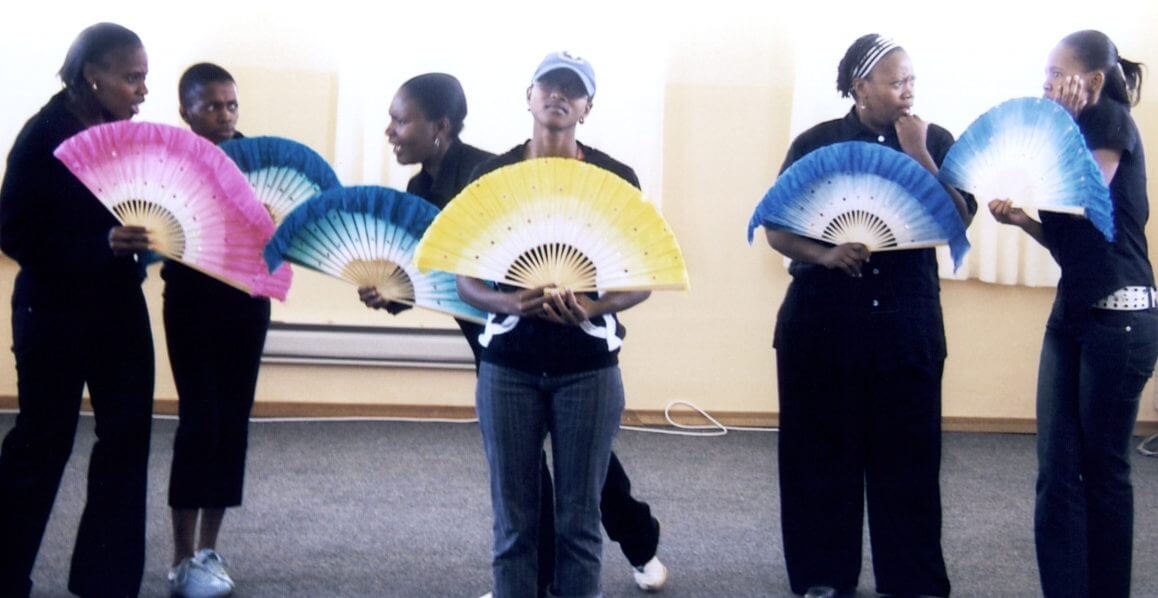
Do You Want to Hear What I Heard? Cast: Mpinane Klass, Limpho Moshanyana, Kekeletso Motanyane, Limakatso Ntelele, Matumahole Phafane, Makaoli Ramashamole, Mapitso Sekete-Clourinah
Again, the more complete story about creating Do You Want to Hear What I Heard? And how it grew out of the Venus project, appears in the chapter Venus in Lesotho: Women, Theatre and the Collapsible Boundaries of Silence – a chapter of the forthcoming South African text Feminist Popular Education in Transnational Debates: Building Pedagogies of Possibility.
The Centre is the result of a collective effort by community members of the Roma Valley and international supporters. The initiative began when concerned villagers from Mahlanyeng, led by ‘Mathabo Dlamini, identified the need for a community centre for orphans and vulnerable children from the nearby villages of Ha Lerata, Ha Lehloba, Thoteng, Ha Ramonamatsa and Motoko. They approached Jennifer Thorn of the Trading Post Guest House in Roma about the idea. Jennifer has long been active in local efforts related to HIV/AIDS, orphans, nutrition and education – and the Trading Post has become a nexus point for sustainable projects and initiatives between local people and international groups, including The Winter/Summer Institute, which is headquartered at the Trading Post during our biennial residencies.
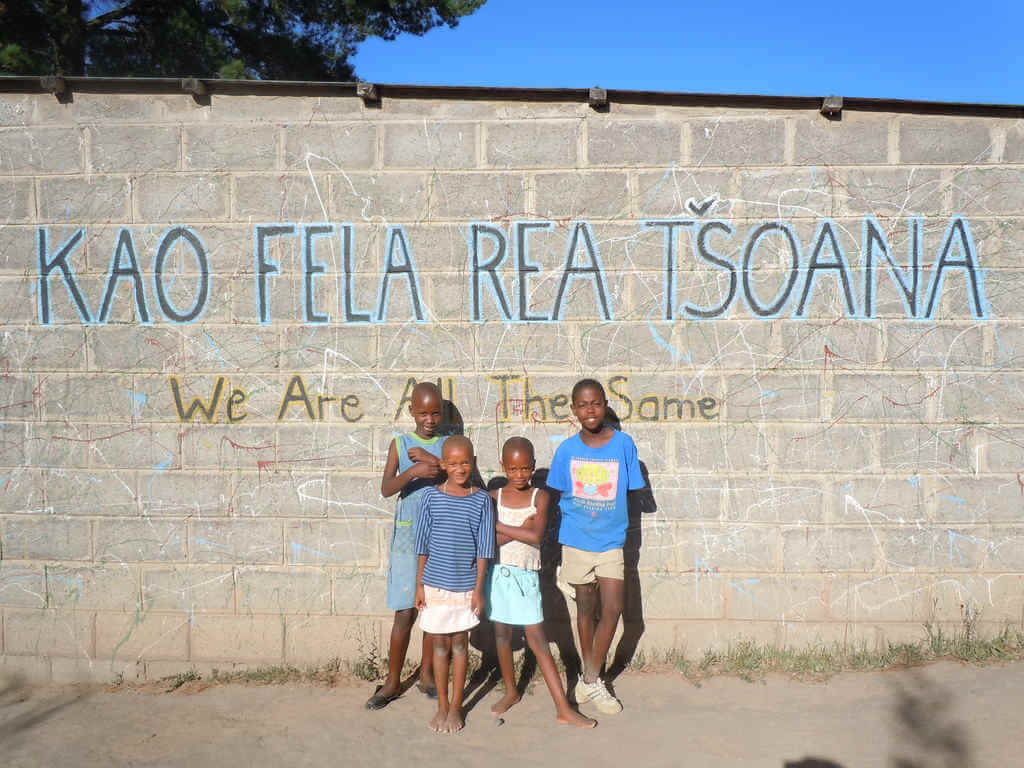
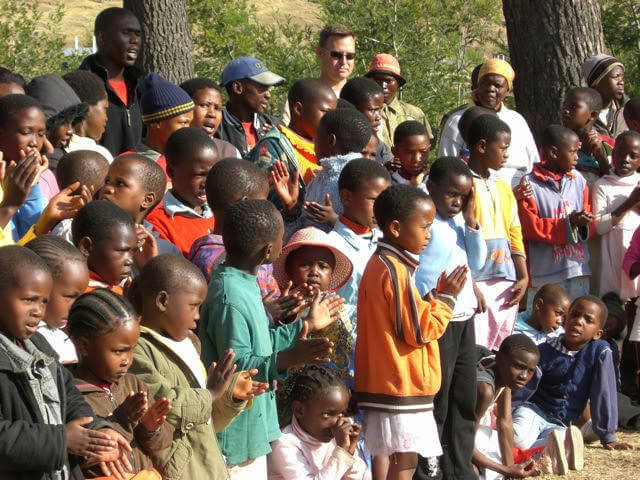
Around the time ‘Mathabo Dlamini approached Jennifer, Dr. Scott Rosenberger of Wittenberg University in Ohio, also approached her about his search for a project his students could get involved in. After consultation with the concerned villagers, it was decided the community centre would be an ideal project to develop. So, Scott, his students and the Rotary Club of Springfield, Ohio, raised funds to build a two room Centre, lay on water and install plumbing. The students, under the guidance of a local builder, constructed and painted the walls. And, on June 1st 2008, the Leratong Community Centre was officially presented to the Community with the aim of “equipping orphans and vulnerable children with life skills as well as offering a safe haven in the afternoons and during school holidays.”
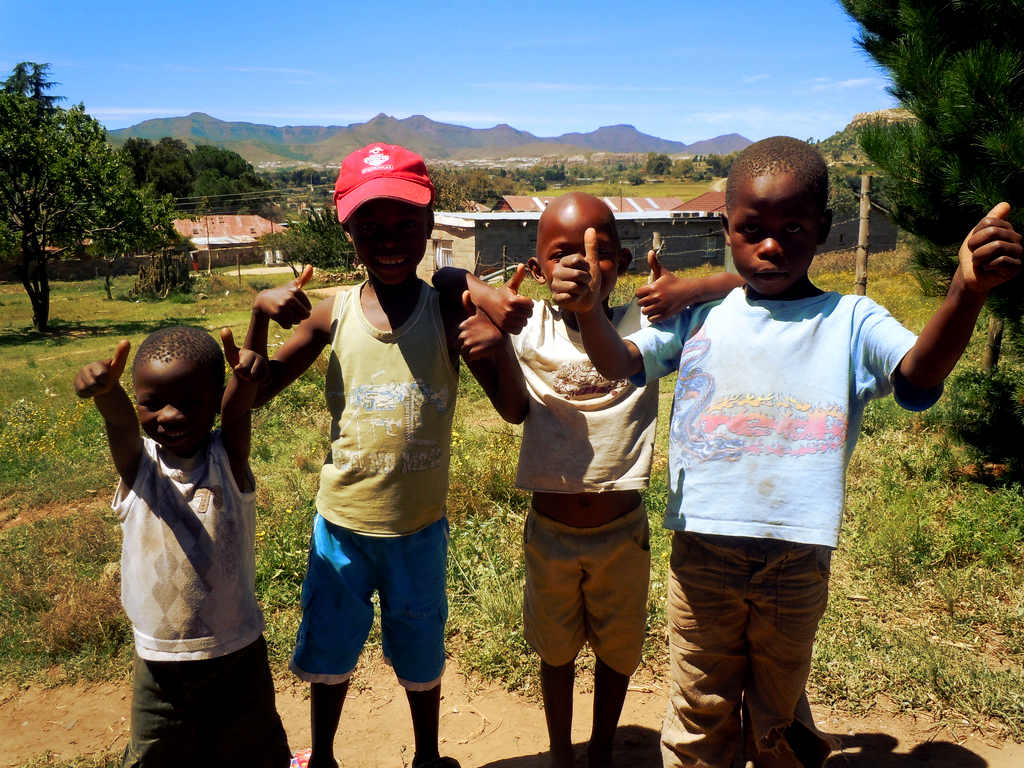
Leratong is now registered as a school with the Department of Education of Lesotho and is being managed by a volunteer community committee of five members which includes: Esther Dlamini, MaLisema Ramaili, Margaret Mahloli, Jennifer Thorn and Morena Lehloba.
Donations to Leratong can be made by international bank wire via Committee member Jennifer Thorn:
LADYBRAND sorting code: 05-56-33a/c J.A. THORN
24 0576 284
STANDARD BANK
SWIFT address: SB ZA ZA JJ
Parcels * can be posted to:
Leratong Community Centre
P.O.Box 86
Ladybrand 9745
South Africa
To email Jennifer about Leratong: tradingpost@leo.co.ls Please write “for Leratong” in the subject field. Be aware the email address is being protected from spam – you need JavaScript enabled to view it.
*The Centre needs the following: stationary supplies; games; toys; art supplies; handicraft materials like wool, cloth, twine; books (in English or Sesotho) to suit all reading levels. And, larger items like: playground equipment; tables and chairs; building materials; fencing; etc. Please check with Jennifer before you send a parcel!